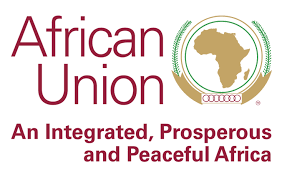The African Union Commission (AUC) has urged member countries to intensify their efforts in tackling the interconnected challenges of food security, nutrition, and educational development.
This call was made during the 14th Meeting of the African Task Force on Food and Nutrition Development (ATFFND) and the consultation of Regional Economic Communities (RECs) held in Kenya from April 2-5, 2024.
The AUC reaffirmed its commitment to collaborating with member states to enhance nutritional standards across the continent. “The AU has been actively engaged with member states to improve nutrition in Africa, undertaking significant initiatives such as the Cost of Hunger in Africa Study (COHA). This research has provided valuable insights into the social and economic consequences of child undernutrition in Africa and the necessary interventions required to address this challenge,” stated the communique.
The AUC also emphasized factors contributing to poor nutrition, such as insufficient agricultural output or deficiencies in nutrients.
Representatives from African Union Member States, various African Union Commission Departments, the African Union Development Agency, Regional Economic Communities, the African Development Bank, United Nations agencies, intergovernmental organizations, civil society organizations, and academia attended the meetings.
In addition, the commission highlighted the importance of enhancing school feeding programs to improve learning outcomes and the health and nutrition of school-going children. “The COHA study revealed that these feeding programs significantly increase school attendance and retention rates, thereby reducing dropout rates. Beyond the psychological benefits, these initiatives enhance learning, cognitive functions, classroom behavior, academic performance, and concentration abilities,” the statement further elaborated.
During her keynote address, Mary Muriuki, the Principal Secretary at the Ministry of Health and Representative of the Government of Kenya, emphasized the challenge of stunting in Africa and expressed gratitude to stakeholders such as the AUC and the World Food Programme for prioritizing nutrition-related issues, leading to improved outcomes in some countries.
Muriuki underscored the urgent need to implement sustainable, locally-driven solutions to achieve Sustainable Development Goal 2 targets by 2030, given the significant economic burdens imposed by malnutrition across Africa.
The ATFFND reviewed the implementation of the Africa Regional Nutrition Strategy (2016-25) and explored collaborative measures to integrate education and nutrition strategies for sustainable development in Africa.
Several key documents were discussed and adopted during the meetings, including the Africa Advocacy and Communication Strategy for Nutrition, the AU Strategic Framework for the Prevention and Management of Anaemia in Africa, and the plan for the new Africa Regional Nutrition Strategy (2026-35).
Furthermore, the RECs consultative meeting focused on adolescent nutrition, discussing the challenges of anaemia in women, children, and adolescents in Africa. Participants engaged with REC representatives on ongoing initiatives at the AUC and raised awareness of adolescents’ nutritional needs.
At the conclusion of the meetings, members adopted two key documents: the Report of the 14th African Task Force for Food and Nutrition Development and the recommendations for the 5th Specialized Technical Committee for Health, Population, and Drug Control.





